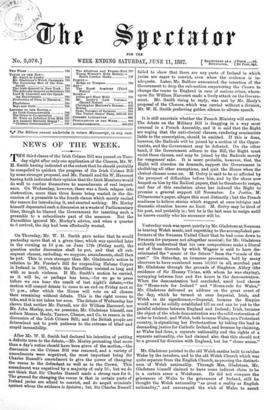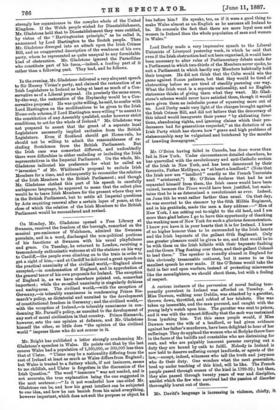Mr. Gladstone pointed to the old Welsh castles built to
subdue Wales by the invaders, and to the old Welsh Church which was quite separate from the English Church, as proving the distinct- ness of Welsh nationality. Through Mrs. Gladstone, Mr. Gladstone himself claimed to have some indirect claim to be in a certain sense a Welshman. He did not compare the grievances of Wales to the grievances of Ireland, still he thought the Welsh nationality "as great a reality as English nationality," and encouraged the wish of Wales to assert
strongly her separateness in the complex whole of the United Kingdom. If the Welsh people wished for Disestablishment, Mr. Gladstone held that to Disestablishment they were entitled, by virtue of the " Hartingtonian principle," as he called it, announced by Lord Harlington to the Scotch people. Then Mr. Gladstone diverged into an attack upon the Irish Crimes Bill, and an exaggerated description of the weakness of his own party, whom he represented as quite unequal to any formidable kind of obstruction. Mr. Gladstone ignored the Parnellites who constitute part of his force,—indeed, a leading part of it rather than a following part. They lead, and he follows.



































 Previous page
Previous page